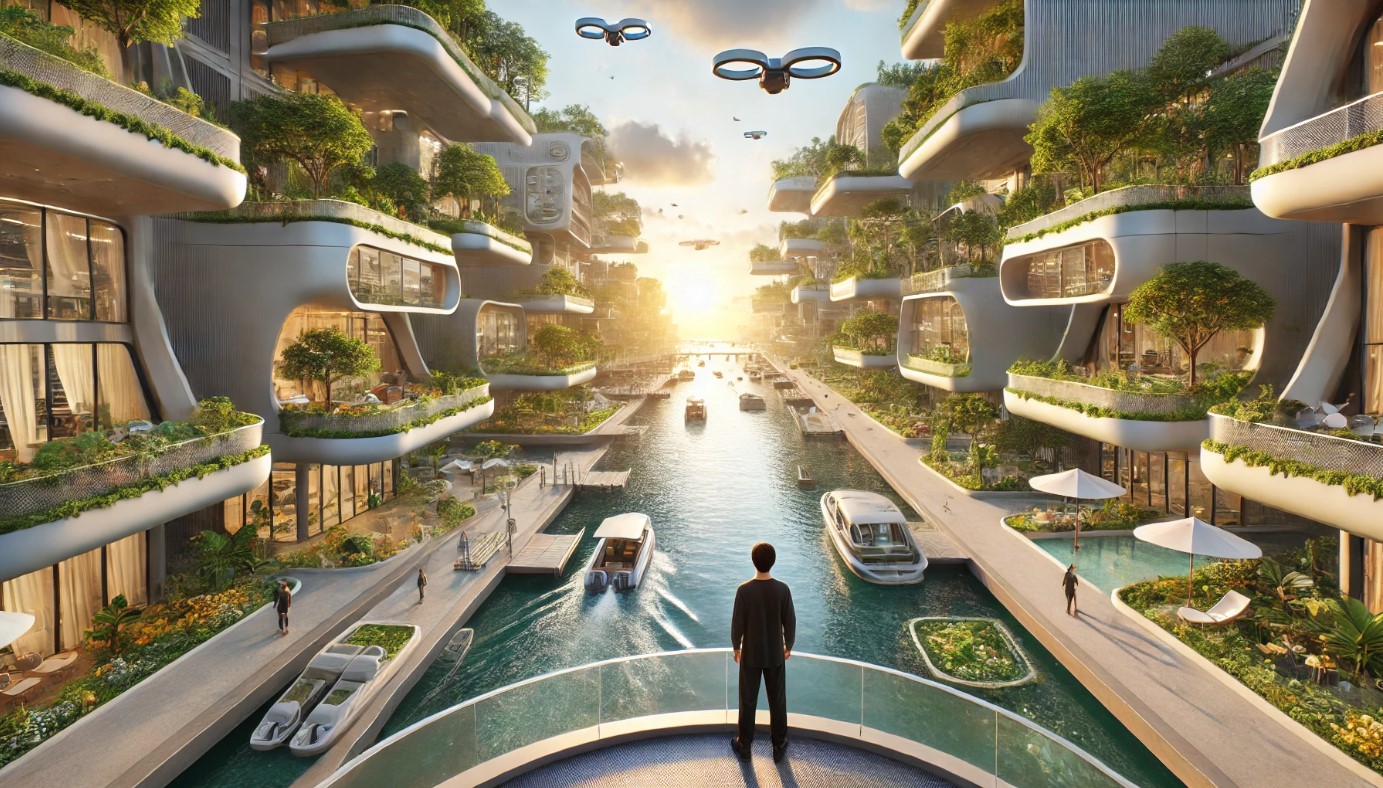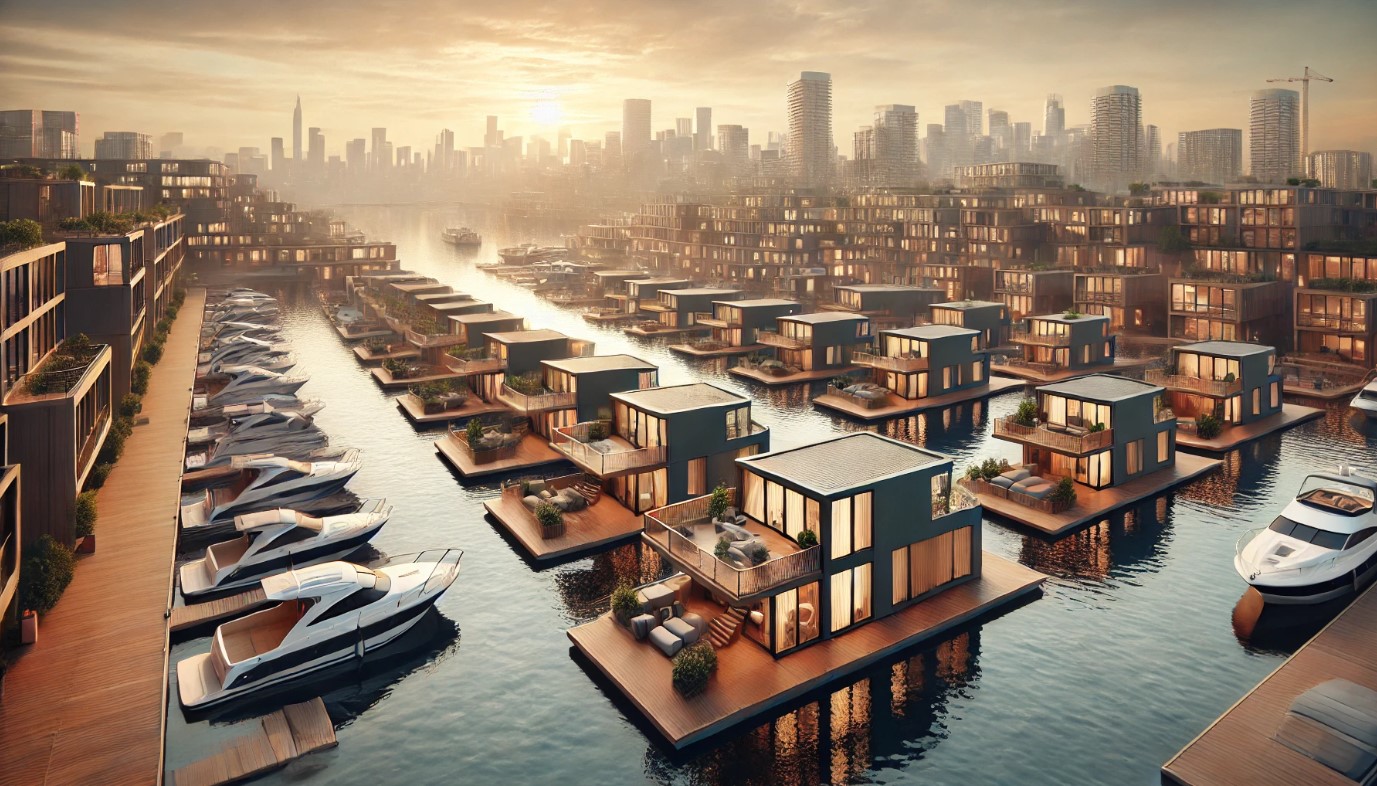As the global population continues to surge and urban areas become increasingly congested, the quest for sustainable and innovative urban development has never been more critical. Enter Aqua Urbanism, a visionary concept that promises to redefine the relationship between urban environments and water. This deep dive into Aqua Urbanism explores its potential to transform urban development on water, offering a blueprint for the cities of tomorrow.

The Essence of Aqua Urbanism
Aqua Urbanism is more than just an architectural concept; it’s a holistic approach to urban planning that harmonizes human habitats with aquatic environments. By integrating living spaces, infrastructure, and communal areas with waterways, lakes, and oceans, Aqua Urbanism seeks to create resilient, sustainable, and adaptive urban ecosystems. This innovative paradigm is not only about building on water but also about living with water, in a way that respects the natural dynamics of aquatic ecosystems and leverages their potential to enhance urban life.

The Architectural Innovation
At the heart of Aqua Urbanism is architectural innovation that combines modern technology with sustainable practices. Floating homes, offices, and even recreational spaces are designed with buoyant foundations, allowing them to rise and fall with the tides and remain resilient against flooding. These structures often have green roofs, solar panels, and systems for rainwater harvesting and greywater recycling, exemplifying self-sufficiency and environmental stewardship.

The Community and Lifestyle
Aqua Urbanism fosters a unique sense of community and lifestyle. Water-based communities encourage a closer connection to nature, promoting well-being and a slower pace of life. The proximity to water offers recreational opportunities like swimming, boating, and fishing, right at residents’ doorsteps. Moreover, these communities are designed to be inclusive and accessible, with waterways serving as the main arteries for transport, blending functionality with scenic beauty.

The Environmental Impact
One of the most compelling aspects of Aqua Urbanism is its potential to mitigate some of the pressing environmental challenges facing urban areas today. By building on water, we can reduce land consumption and the associated ecological footprint. Aquatic urban developments can also play a crucial role in biodiversity conservation, providing habitats for marine life through the creation of artificial reefs and wetlands. Furthermore, the emphasis on renewable energy and sustainable practices within these communities contributes to the global fight against climate change.

The Economic Viability
While the concept of living on water might seem like a luxury, Aqua Urbanism also presents a viable economic model. Waterfront properties have always been highly valued, but Aqua Urbanism takes this a step further by offering unique living experiences that are both sustainable and desirable. Additionally, the modular and scalable nature of water-based structures allows for flexibility in development, catering to a range of economic levels and adapting to the growing needs of urban populations.

The Challenges and Future Prospects
Despite its promise, Aqua Urbanism is not without challenges. Legal, regulatory, and technical hurdles must be navigated to make these visionary projects a reality. Issues related to maritime law, zoning, and infrastructure development in aquatic environments present complex challenges that require innovative solutions and collaborative efforts among governments, developers, and communities.
As we look to the future, Aqua Urbanism stands as a beacon of hope and innovation in urban development. With the right blend of visionary thinking, technological advancement, and commitment to sustainability, the blueprint for tomorrow’s cities on water is within our grasp. Aqua Urbanism not only offers a solution to the spatial constraints of traditional urban development but also opens up new avenues for creating resilient, sustainable, and vibrant communities in harmony with the world’s waterways.



